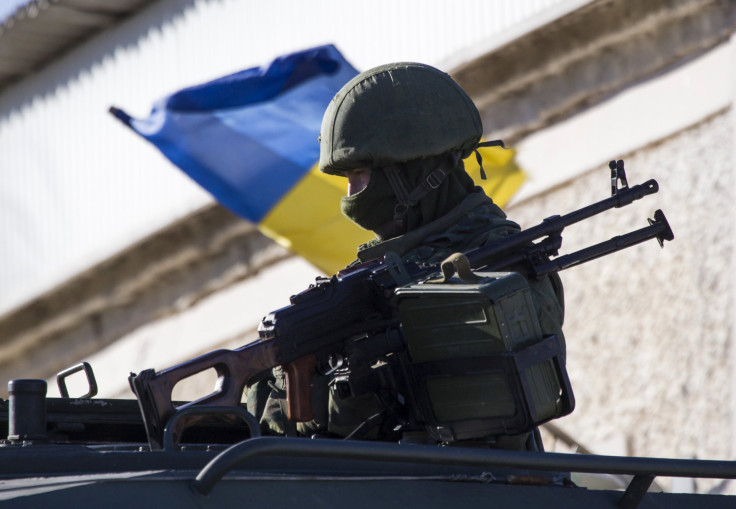Give Russia Chance To De-Escalate In Crimea: UK Defense Chief

WASHINGTON (Reuters) - If Vladimir Putin follows traditional Russian military doctrine, he may seek to de-escalate the crisis in Ukraine and not move beyond annexing Crimea, Britain's defense chief said on Wednesday, adding the West should not militarize the standoff.
British Defense Secretary Philip Hammond said it was important to reduce tensions with the Russian leader over the Crimea by avoiding an aggressive military response from NATO allies and instead using diplomatic and economic levers of influence.
"Everything I see about the way Putin is playing this and the nationalist sentiments that he's appealing to suggests to me that a more aggressive military response from the West would simply be playing into his hands," Hammond told a small group of reporters at the British Embassy in Washington.
Hammond was visiting the capital for previously scheduled talks with U.S. Defense Secretary Chuck Hagel, but the crisis prompted by Russia's seizure of Ukraine's Crimean peninsula earlier this month dominated their conversations.
Putin's move was followed by a quick referendum and the formal annexation of the region by Russia.
Moscow has massed troops along its frontier with eastern Ukraine, raising fears of further aggression, but Russian Defense Minister Sergei Shoigu has assured Hagel the troops are conducting exercises and have no plans to cross the border.
"We know that Russian military doctrine advocates escalating in order to de-escalate," Hammond said. "So we have to focus on the de-escalatory phase now ... We should not write off the possibility that this escalation we're seeing is indeed simply the playing out of the classic Russian military doctrine." Hammond advocated use of diplomatic and economic steps to bring pressure on Putin, especially using energy policy to encourage investment in projects that would give Europe greater energy independence from Russia.
"It's always tempting to look at the opponent and see strength, but we should also identify where the weaknesses in the Russian position are. The Russian economy is an Achilles heel. Capital is fleeing the Russian system in response to the events that are going on," he said.
Hammond said encouraging de-escalation did not mean NATO allies had accepted Russia's grab of the Crimea.
"What has happened is an illegal act, a referendum at the point of a bayonet, an illegal annexation," Hammond told a joint news conference with Hagel at the Pentagon.
"The international community will not recognize what has happened as a status quo that will be allowed to stand," he added. "There will be consequences for Russia: economic, diplomatic and otherwise."
Hagel said Western diplomacy, narrow sanctions and other steps taken by NATO had already had an impact on Moscow.
"It's pretty clear that the isolation that Russia is bringing on to itself is going to have significant consequences for that country," Hagel said.
The Pentagon chief said Russia's actions would prompt the 28-member states to reconsider the military investments they make for both the alliance and their own security.
Defense spending in U.S. and European countries has been under pressure in recent years, leading to criticism by some U.S. officials that NATO members are not investing enough their militaries.
"What we're seeing is going to reset NATO for the next few years in a very good way, an effective way," Hagel said.
© Copyright IBTimes 2024. All rights reserved.











